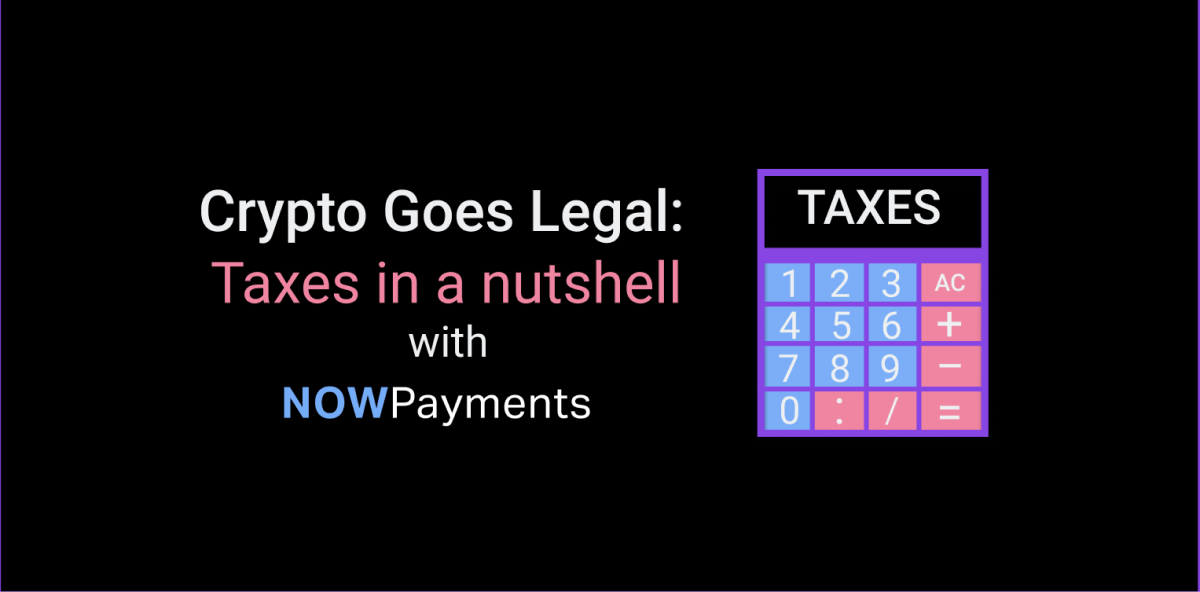New Rules
Cryptocurrency taxations’ matter puzzles owners of coins worldwide. When did crypto become legal? Do we need to pay for all the operations or there are some exceptions? If you keep these questions in mind, NOWPayments has prepared for you a small report to clarify the situation.
To begin with, many people still think that crypto is grey and its users are free to manage their sources informally, but now coins are treated as property with digital representation of value. In 2017 the world came to terms with crypto being more than a passing thing, and in 2019 it ranked as the inevitable part of the future. For example, in the USA there were millions of crypto owners online with only hundreds of them reporting crypto trades. As a result, crypto tax policies were globally introduced with updated guidance and upgraded crypto tax rules.
Different attitudes
Though crypto is an international phenomenon, each country has its crypto taxation peculiarities. Crypto owners from Brazil must report every crypto transaction monthly. Bermuda is going to be the first government with its own stablecoin, USD Coin, for tax payments.
In the UK the HMRC has changed its cryptocurrency taxation policy paper, so now crypto is not regarded as currency, now coins are described as “cryptoassets”, so sales, exchanges, and other operations involving crypto are taxed. Salary and mining are subject to income tax.
Taxation rules are not the same all over Europe. For example, in Denmark crypto traders are asked to provide Skattestyrelsen with detailed reports on their transactions, including profits and losses from 2016 to 2018. At the same time, in France crypto-to-crypto transactions are tax free, and crypto is taxed only when sold for fiat currency. So each country should be personally checked.
As for Asia, today there is no tax policy in China, however the situation may change anytime. In Singapore Goods and Services Tax doesn’t apply to crypto transactions. Meanwhile, in Thailand the government refunds taxes using blockchain, besides a blockchain-based tax payback system is supposed to be introduced this year to take the better control over tax payments.
Speaking about the USA, let’s point out taxable crypto operations:
- Payments. When you do online shopping or pay for the services in crypto, you need to report them.
- Sales. If you sell crypto for traditional money and get the gain.
- Conversion. When you convert your coins by buying some crypto vis another one.
- Mining and forking. Whenever it is your hobby or a permanent source of finances, this kind of earning also must be reported.
- Salaries and rewards. If your salary goes in crypto it will be taxed as your income. Earned interest is taxed as well.
- Donations. Donating more than $500 in crypto requires the filing of Form 8283.
Not everything comes with a price. There are some crypto operations that require no taxes:
- When you gift someone with coins, you don’t have to pay taxes.
- Transferring crypto from one wallet to another with no gains or losses.
- Buying crypto with cash is not taxable till you trade.
As you see, crypto taxes in 2020 can be not as messy as it seems. Enjoy paying and accepting money with NOWPayments and pay your taxes on time.

